MediaPurgatory.com is a participant in the Amazon Services LLC Associates Program. As an Amazon Associate, this site earns from qualifying purchases. This site also participates in other affiliate programs and is compensated for referring traffic and business to these companies.
I’ve watched Breaking Bad, The Wire, and The Sopranos in their entirety, and I enjoyed them all very much. The series were extremely well-written, the characters were well-acted, the plots were well-crafted, and all of this kept me at the edge of my seat to the very last episode. After some time, I decided to invest my time in another TV series, so I googled “The Greatest TV shows of all time,” and I came across Rolling Stone‘s list.
The first three spots on the list were occupied by the aforementioned series, but at no.4 was a show called Mad Men. It was also placed at no.7 by IGN.com and no.5 by wealthygorilla.com. I’ve never heard of it, but I thought since this series is always in the company of Breaking Bad and The Wire, it must be excellent.
Seven seasons and 92 episodes later, I must conclude: Mad Men sucks. Although I never expected Mad Men to be as good as The Sopranos, the show left me wondering: what the hell was all the acclaim and praise about? In this review, I go into detail about everything I found wrong with Mad Men.
This review contains spoilers.
I got some of the warning signs at the beginning of the first season. I got to know the main characters and followed them through their daily routines, but something was off. I never got to care about any of them, and the plot was practically non-existent.
I kept watching the episodes thinking that maybe the first episodes were just laying the foundation for the exciting events to come, but then I finished the entire first season only to find that nothing exciting ever happened. The rest of the seasons were only slightly better.
1. Don Draper
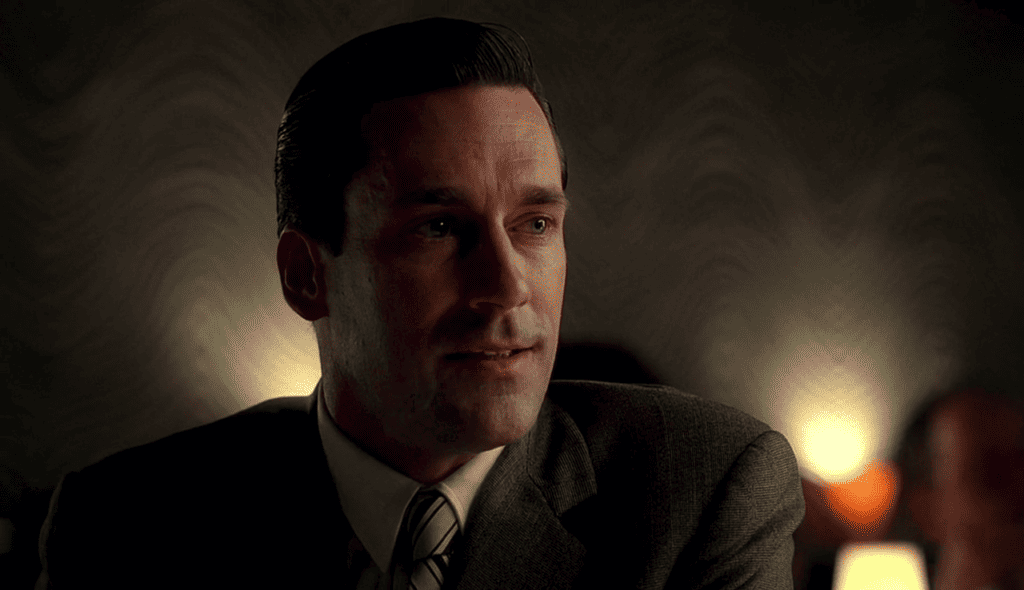
One of the biggest problems I had with the series was Don Draper. He is by far the most boring protagonist I’ve ever come across. I found him to be nowhere nearly as interesting as Walter White, Tony Soprano, or Jimmy McNulty. What’s worse is that the creator of the show, Matthew Weiner, is trying to pass him off as this mysterious and complex character who we cannot get enough of.
If Don Draper introduced himself to us, what would that sound like? “Hi! I am Dick Whitm— I mean, Don Draper. I have a beautiful wife, a high-paying job, and three healthy children. But, despite all of this, I am constantly unhappy, and for some reason, I cheat on my wife with less attractive women than her. Watch me wear expensive suits, yell at my employees, and have a really high opinion of myself for 92 episodes. Aren’t I interesting?”
I remember season four beginning with a voice asking “Who… is Don Draper?”. Don is talking to a reporter, but it’s clear from the scene that we, the audience, are being asked. Immediately I thought: who freaking cares?! I’ve spent three whole seasons wondering what the hell is this guy doing in the leading role.
He’s not funny, relatable, or interesting in any way. Don Draper has only two things going for him: he’s good at advertising and he’s physically attractive. That’s it! And yet, the writers are trying to portray him as some kind of Rubik’s Cube that we need to solve.
In the final season (episode 10), Don has an altercation with one of his employees, John Mathis, about a client presentation that went horribly wrong. Johnny blames Don for the fiasco because, from his perspective, the meeting went wrong only because he was following Don’s advice.
Don tells him that the reason for him messing up was not his advice, but that Johnny doesn’t have any character. Johnny snaps back at him: “You don’t have any character! You’re just handsome. Stop kidding yourself!” This line stuck with me because this is what I have been thinking of Don since the beginning of the series. Finally, someone told the truth about Don Draper.
2. Cigarettes

From the very first episode, it becomes clear that nonsmoking is strictly forbidden in Mad Men. The characters go into each other’s offices, and they smoke cigarettes. They have meetings, and they smoke cigarettes. They have client presentations, and they smoke cigarettes. They have expensive dinners at fancy restaurants, and they smoke cigarettes. Between smoking cigarettes… they smoke more cigarettes. By season two I think I got lung cancer just by watching this stuff.
For some reason, the director has to subject us to a shot of a character putting a cigarette in his/her mouth, lighting it up, and slowly exhaling the smoke through his/her mouth multiple times in every single episode, and he has to make sure that we experience every tiny detail. The first two seasons felt like a one-long cigarette ad.
It would be okay if we had one or two of these cigarette shots every once in a while, but in Mad Men, this happens with such frequency that it becomes extremely annoying. I couldn’t help but think that the entire show’s purpose was to get the audience to start smoking, by making them want to be “as cool as Don Draper.”
3. Plot Holes and Irrationality

For those who haven’t watched Mad Men, Don Draper’s real name is Dick Whitman. The real Don Draper was a soldier who served alongside Dick in the Korean War, and who was accidentally killed by Dick. The accident also causes Don’s face to be severely burned, to the point of it being unrecognizable, and Dick uses this opportunity to switch their dog tags so he can steal his identity.
It works! Dick wakes up in a hospital, he is awarded the Purple Heart, and he is sent back home to the USA with his new identity. I find it hard to believe that switching the dog tags was sufficient to pull this off. The army would have likely had a file on the real Don Draper with his photograph. It’s also very likely that the army buddies and superiors of the real Don would have visited him at the hospital and saw that he is not actually Don Draper.
But, this was not the event that irritated me. My problem was with how the story progresses from here.
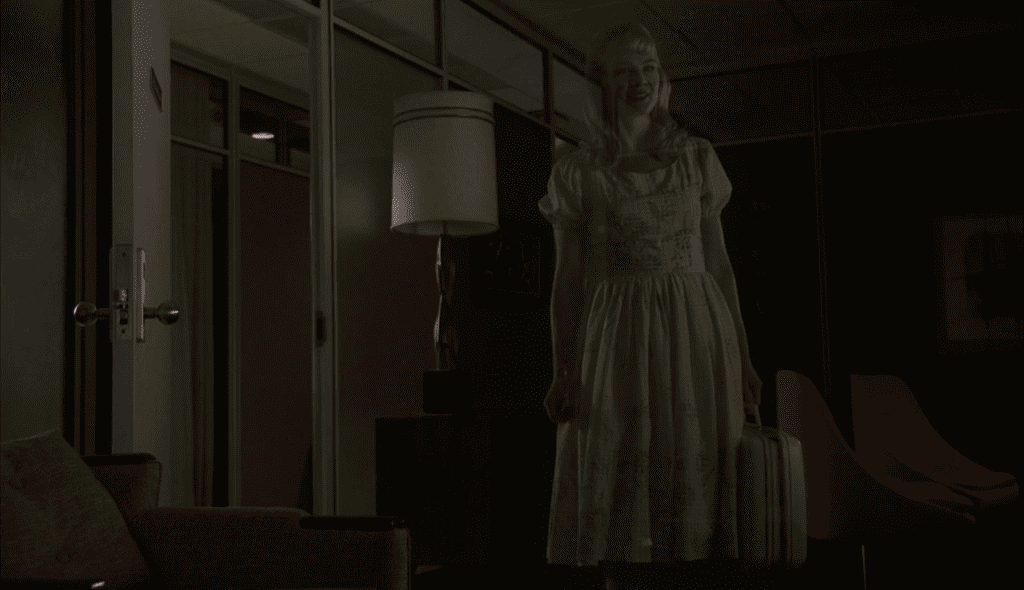
The wife of the real Don Draper, Anna Draper, tracks down Dick who works as a used car salesman while using her husband’s name, confronts him, and finds out that her husband is actually dead. Then, we learn that Dick and Anna would go on to become close friends and that they care about each other very, very much.
Wait! What?! How the hell did these two get from “you’ve killed my husband and stolen his identity” to “we are best friends forever”? Am I missing something?
Don buys Anna a house in California and sends her money every now and then, so you could say that this is why Anna doesn’t go to the authorities to report Dick, but still, it is never explained why they care about each other so much. As if the writers have completely forgotten that their relationship is entirely based on blackmail: Anna keeps her mouth shut and Dick gives her money and buys her houses.
When later in the series Don/Dick receives a phone call that Anna had passed away, he breaks down crying and tells Peggy Olson that “the only person in the world who really knew him” has died. Yes, Don, the only person who can send you to prison for a very, very long time is now gone. Why the long face?
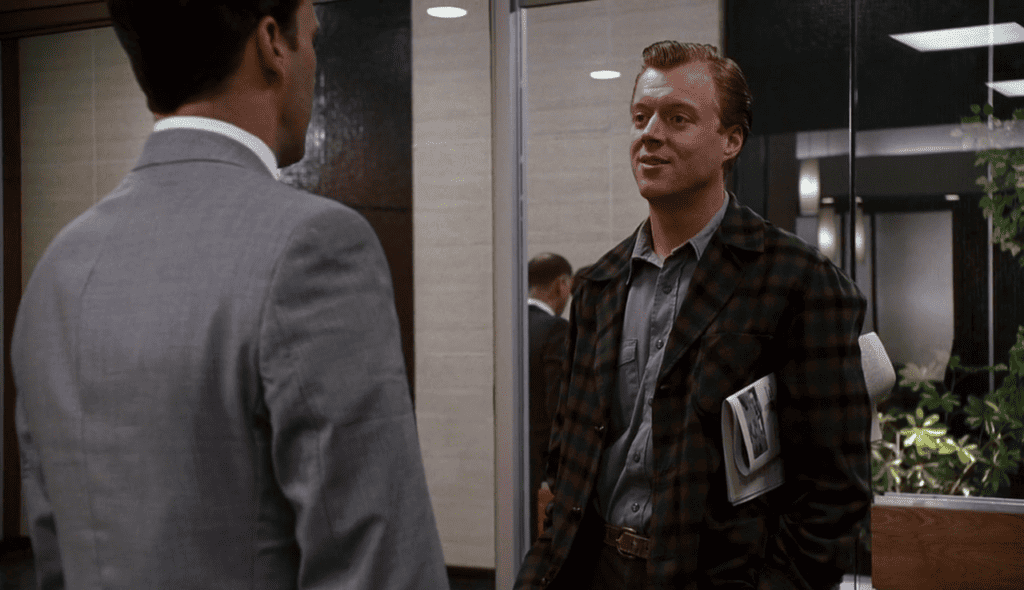
After seeing a picture of Dick in a newspaper, Adam, Dick’s half-brother, tries to get in touch with him. He is happy to find out that his half-brother is still alive, but Dick wants to cut all ties to his previous life, so he gives Adam $5000 and tells him to leave him alone. Adam is very upset by this and commits suicide. Now, it is understandable for Adam to be upset after being treated like this, but the suicide part was an exaggeration.
It would be understandable if Adam and Dick were very close to the point where Adam could not imagine his life without his half-brother, but this is a guy who has lived his entire adult life thinking that Dick had died in Korea. He’s not someone who cannot live without his half-brother, because he has already been living that way for 10 years.
If anything, he got $5000 from the whole thing, and although Dick doesn’t want to see him anymore, he should, at least, be happy that his half-brother is alive and well. His suicide seemed forced and irrational. As if the writers needed something dramatic to happen just for the sake of it.
Another implausibility was Roger Sterling‘s health. As a result of his excessive smoking and drinking, he suffers two consecutive heart attacks toward the end of the first season, but although he continues to smoke like a chimney and drink like a fish throughout the rest of the series, he is somehow miraculously fine and his heart attacks stop.
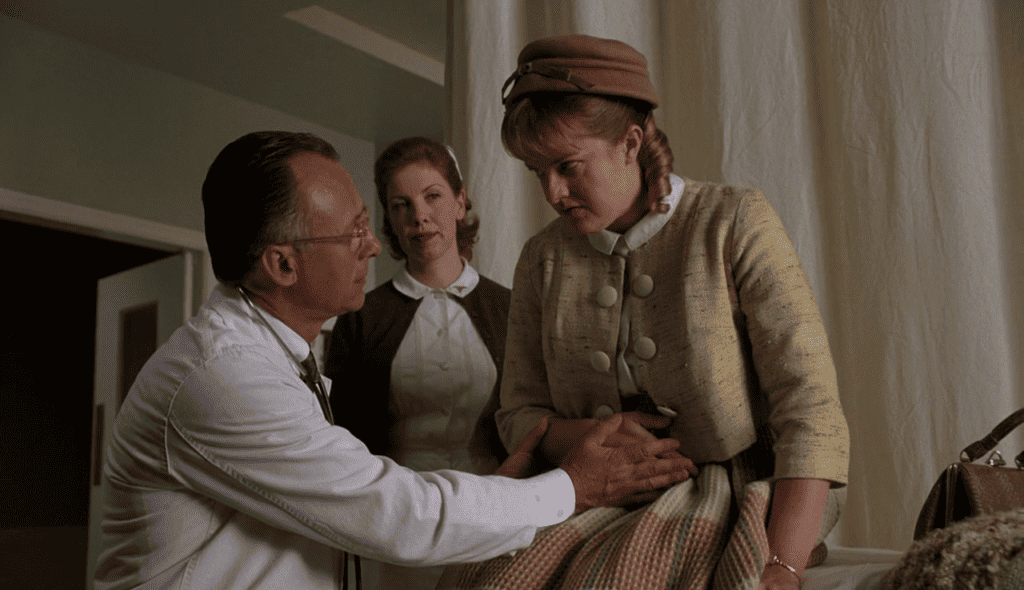
But, the biggest implausibility of them all has to be Peggy Olson‘s pregnancy.
So, let me get this straight: the girl finds out that she was pregnant minutes before childbirth?! For nine months she thought that she had just gotten fat?! She couldn’t feel the baby kicking or something?! And what about her colleagues and her family? No one noticed anything?!
Usually, in real life, our female friends have the magic ability to tell if one of them is pregnant only a week after she gets pregnant, but we are supposed to believe that everyone who witnessed Peggy’s rapid weight gain thought to themselves: “Well, I guess she likes chocolate.”?!
4. Peggy Olson and Joan Harris
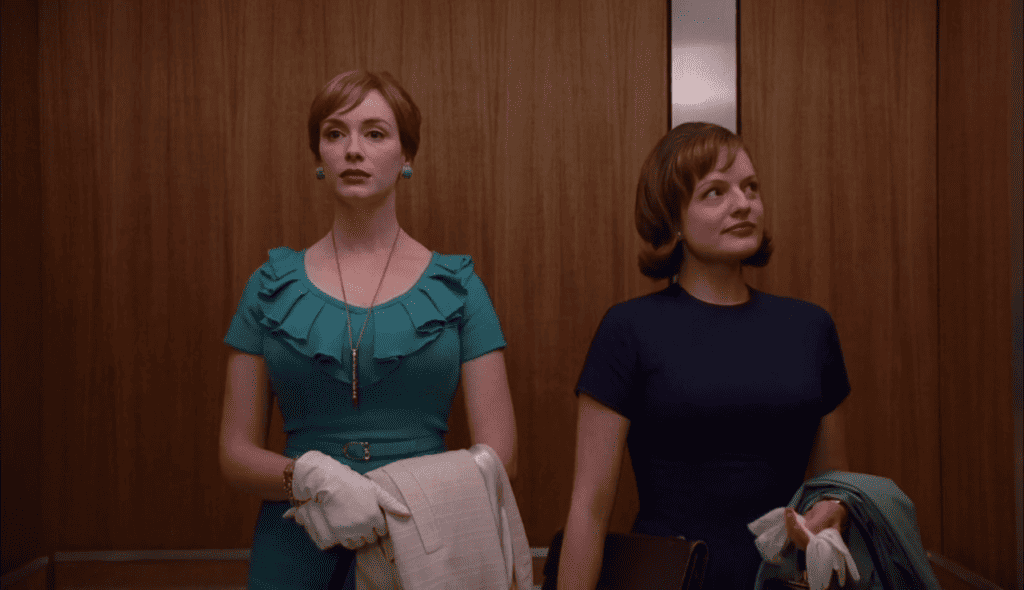
Peggy and Joan are arguably the most likable characters in the entire series, and in many ways, they are passed off as the real heroes of the show. But, if we take a closer look, we will see that they are both horrible people.
In the first season, Peggy has an affair with Pete Campbell—a man who she knows is recently married. She gets pregnant, and after the childbirth, she abandons the baby and puts him up for adoption so she can sleep around with random men she meets in bars. She does this even though, now that she is a copywriter, she has enough money to take care of the baby, and the help of her mother and sister.
In the sixth season, she has another affair, this time with another coworker, Ted Chaough—a married man with a family. Ted goes to California to get away from Peggy because he acknowledges that he is too weak to end the affair himself, and he sees this as the only way to save his marriage. When Peggy hears this, she is angry that she couldn’t keep the affair going forever, regardless of the potential consequences for Ted and his family.
Peggy never shows any remorse or feels guilty about abandoning her child or having affairs that could ruin lives.
Joan has a similar problem, but she takes it even further. She has an affair with Roger Sterling and she gets pregnant by him while her husband serves in Vietnam. When her husband returns, she lies to him that the baby is his.
Getting pregnant by another man, and then lying to her husband that he is the father, is one of the worst things that a wife could do, but I guess this behavior is okay because Greg (Joan’s husband) is portrayed as a jerk, and therefore deserves this. Say what you want about Greg, but as far as we know, he never cheated on Joan.
It seemed that, through Peggy and Joan, the writers were trying to normalize affairs, lying, and child abandonment. I know that other characters in the series were guilty of the same or similar behavior (Don, Roger, Pete, Lane), but the writers never portrayed them as role models for anyone. From the beginning, it was clear that all of these characters had a broken moral compass, and in one way or another, they all suffered the consequences of their actions.
Peggy and Joan, on the other hand, are portrayed as role models, but their misdeeds are dismissed as “no big deal.”
5. Pete Campbell and Ken Cosgrove
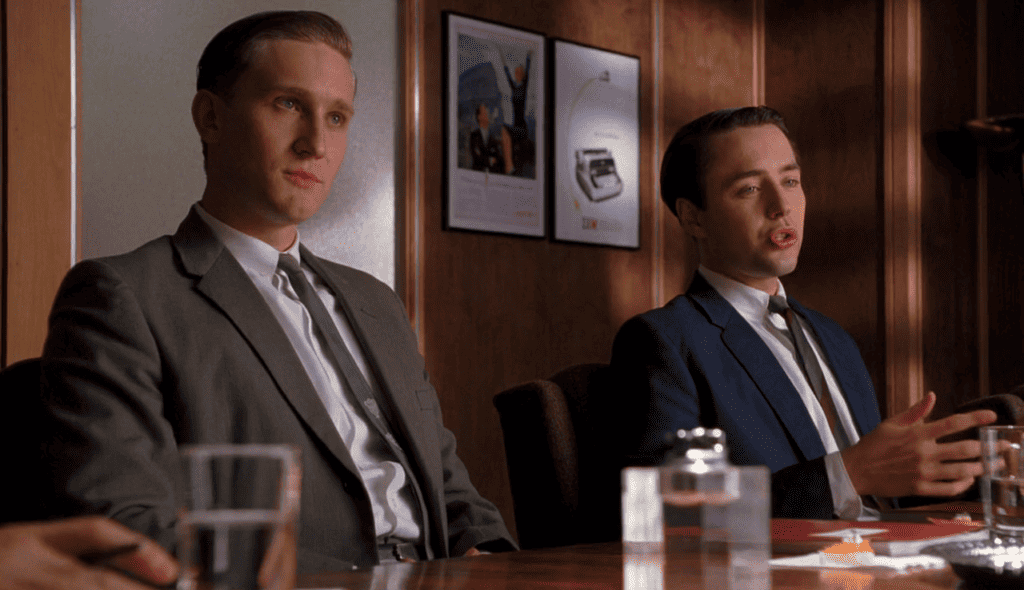
Pete Campbell is a character I didn’t know how to feel about. Unlike Don Draper who is well-established in the company and is probably their greatest asset, Pete has to constantly prove himself to his superiors and, especially at the beginning, is one mistake away from being fired.
This made him a bit more relatable than Don, but the character doesn’t really seem to go in any direction. He wasn’t likable enough for me to care for him, nor despicable enough for me to hate him, nor funny enough for me to find him interesting; he’s just… there… existing for some reason.
I believe that Ken Cosgrove would have made a better protagonist than Don Draper. He is one of two people in Mad Men who I found admirable (the other being Henry Francis, Betty’s second husband). He is the only one in the company who didn’t backstab anyone, and he doesn’t cheat on his wife. Unlike his colleagues, he values loyalty more than a high position or a bigger paycheck, which makes him a unique character in the series.
He is constantly being given the craziest and worst clients to manage, and I believe that Mad Men would have been a lot more entertaining if he was the main character. Also, Ken was the one who made the biggest sacrifice for the company by becoming a pirate toward the end.
6. Roger Sterling and Bert Cooper
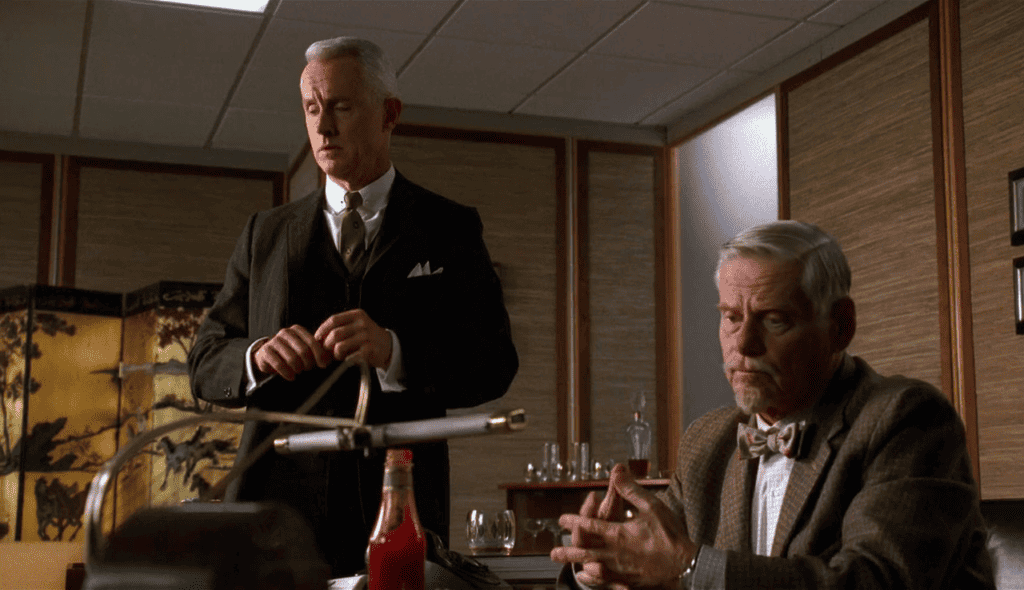
Roger Sterling was by far the most interesting character in Mad Men. Almost 100% of the humor came from him. He always had a witty remark and managed to save an otherwise dull scene.
My favorite moment in the series was when Lane and Pete were about to fight, and Roger remarks: “I know that cooler heads should prevail, but am I the only one who wants to see this?”. Unfortunately, one interesting character was not enough to save the series.
Bert Cooper was wasted potential. Robert Morse is a veteran actor who’s been acting since the 1950s and has won numerous awards, so the writers could’ve used him a little more.
But, Bert doesn’t seem to be involved in anything: he doesn’t attend presentations and he doesn’t bring any new clients to the company. For the most part, he just sits in his office reading Ayn Rand and admiring Japanese culture. It seems that Bert’s only job is making sure that Roger Sterling is not the oldest person in the company.
7. The Ending

For the ending, I expected something along these lines: Don finally tells everyone that he is really Dick Whitman, he reports himself to the authorities, he confesses that he is a deserter and that he is actually responsible for the death of the real Don Draper.
This would explain why he was subconsciously sabotaging every relationship he had: he didn’t feel that he was deserving of the love, respect, and wealth he was getting, and no matter what he did, he could never escape the guilt of being responsible for another man’s death. Deep down he knew that he deserves punishment.
By confessing to all of this, he is stripped of all the wealth and status, and he is looking at a long-term prison sentence, but he is finally able to find the peace of mind that he couldn’t get from all the wealth, status, and liquor.
This would have made Don a lot more interesting and complex character in hindsight, and the series would have ended with a powerful message.
In the actual ending, Don confesses this to Peggy Olson (who doesn’t believe him anyway), and to a bunch of WW2 veterans who he knows will never tell anyone (because they confess to similar things themselves). The only other people who know about Don’s real identity are Pete Campbell and Bert Cooper who are also good at keeping his secret.
In the end, Don never actually faces any consequences; he just comes up with another ad while meditating on a hill. This lacked the emotional punch I was looking for, but then again, so did the rest of the series. Well, I guess I can’t say Mad Men lacked consistency.
I also found it implausible that, out of nowhere, Peggy and Stan decided that they were in love, even though there was never any romance between these two during all the years they’ve worked together. It seemed like the writers needed something important to happen to Peggy at the end, but they couldn’t think of anything else.
8. Conclusion
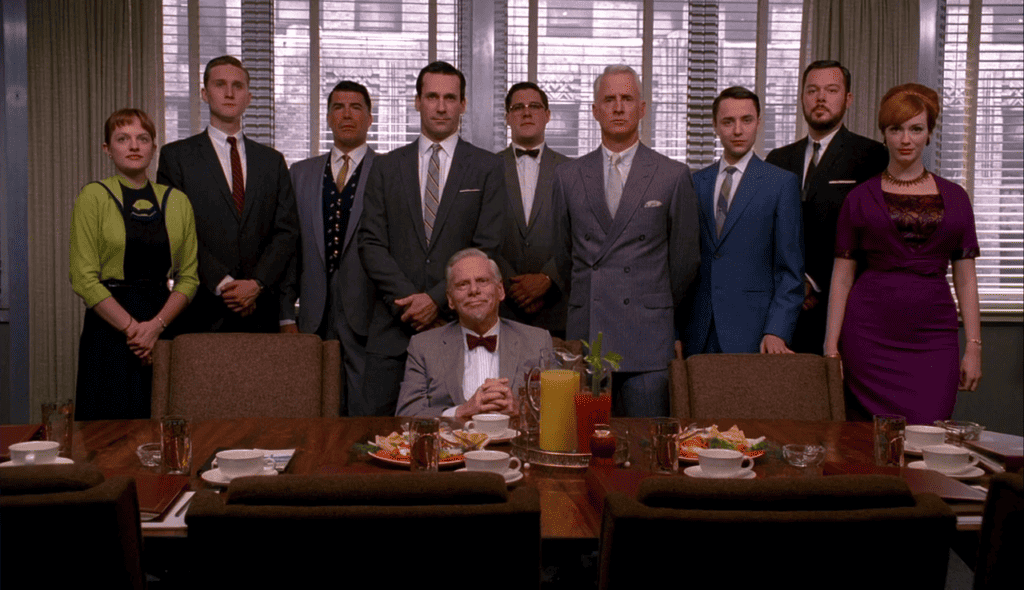
In many ways, Mad Men was like a soap opera, except I didn’t get to care about any of the characters. The only positive thing that I can say is that the acting was top-notch. Every single actor, from the lead to the supporting roles, did their best with the material given to them. But, unfortunately, this is where the praise ends.
Years ago, I was reading a book about writing fiction, and when I read about the plot, it said something like: “Plot is not just random people going through their day, doing their mundane tasks.” But, this is exactly how Mad Men felt to me; it all seemed to go nowhere.
At least with a show like Friends, we got likable characters who we can identify with, who can make us laugh, and perhaps there would be an interesting lesson or a message at the end of the episode. Mad Men was devoid of all these traits. The Sopranos, The Wire, Breaking Bad, and the first season of True Detective remain the best television content I have experienced, and Mad Men will not be joining them any time soon.
Phew… that was a long review. Congratulations if you made it to the end! What do you think about Mad Men? Did you like it? Do you think it deserves its place among the greatest TV series of all time, or do you think it’s overrated?

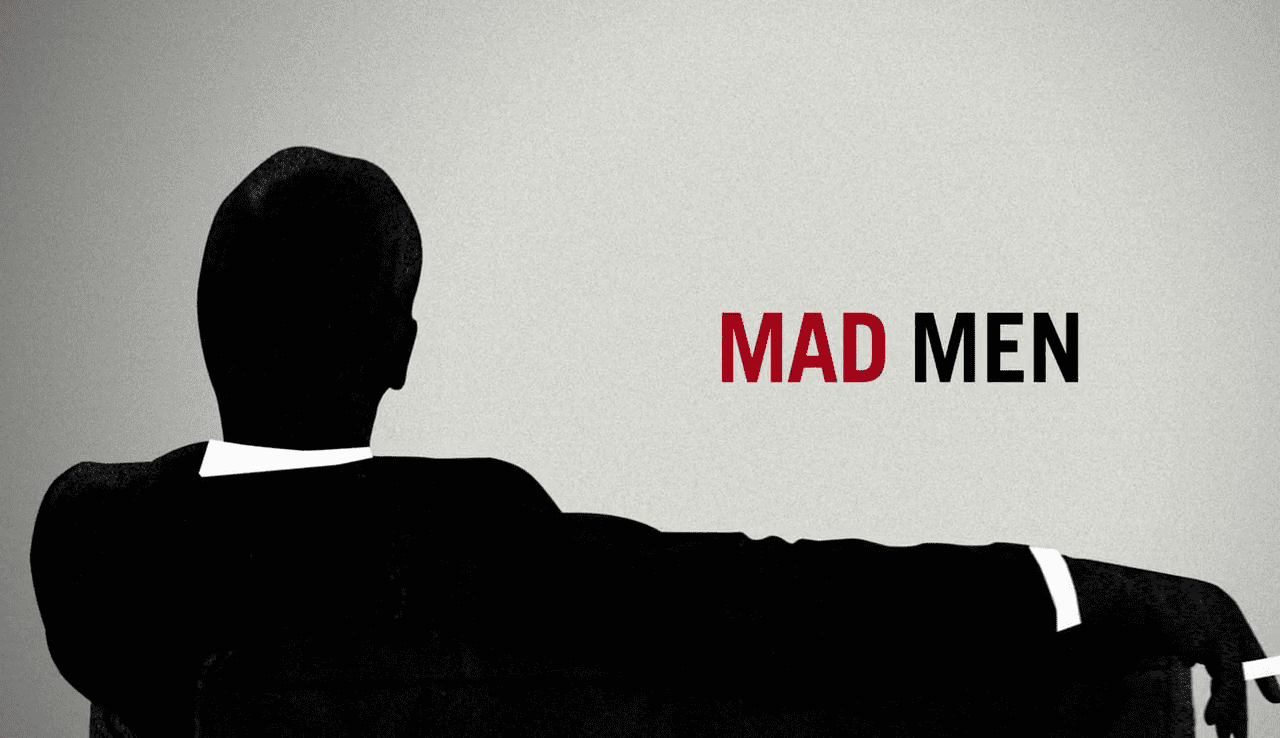



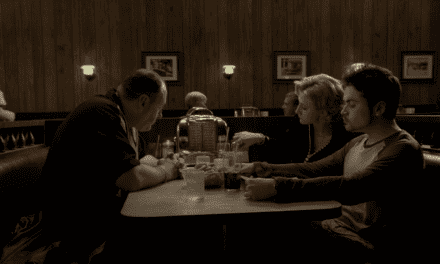
Recent Comments